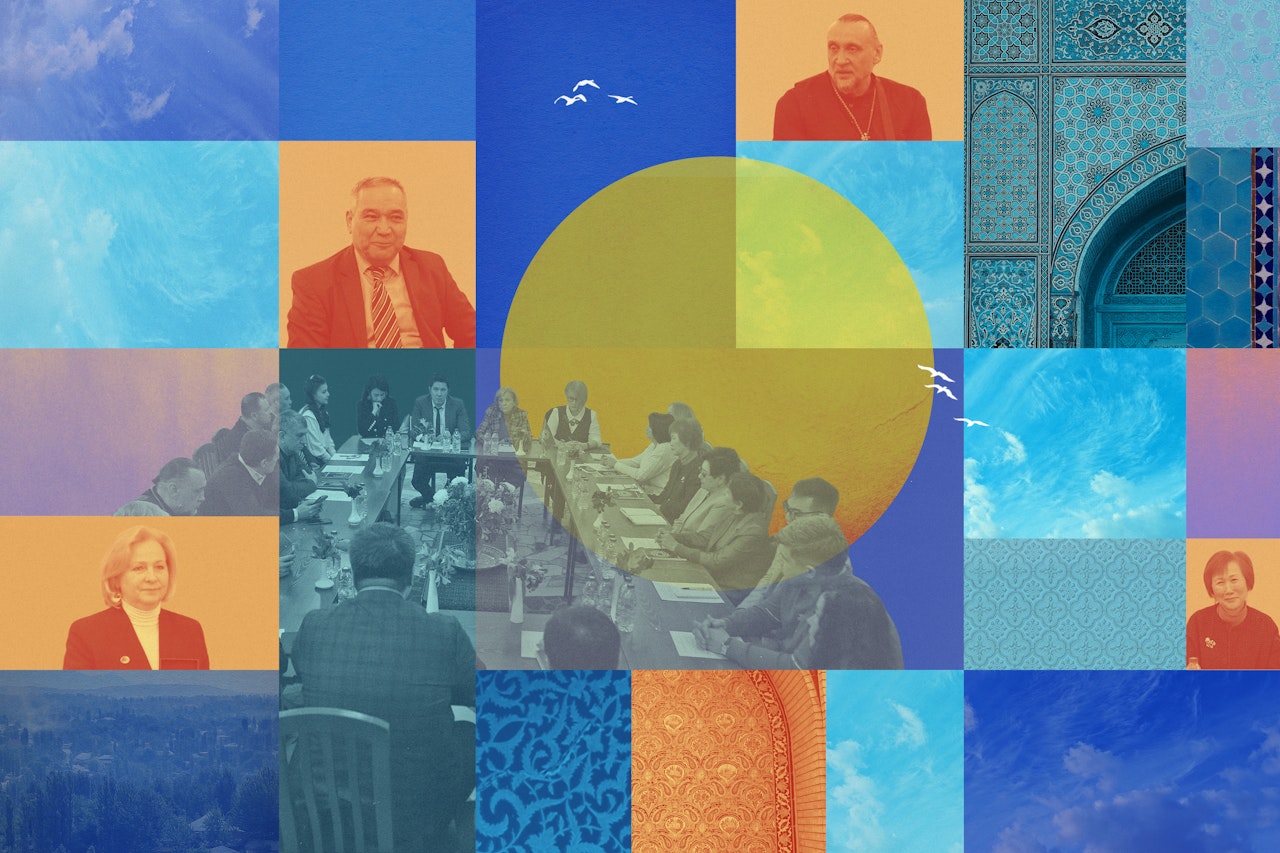Uzbekistan
Shifting consciousness of the role of faith in a secular state
A new conversation in Uzbekistan sees officials, faith communities, and secular actors exploring shared values for a just and harmonious society.

A new conversation in Uzbekistan sees officials, faith communities, and secular actors exploring shared values for a just and harmonious society.

TASHKENT, Uzbekistan — When Uzbekistan’s constitution was amended in May 2023 to formally define the country as a “secular state,” it opened the possibility for re-envisioning how faith communities could contribute to social development.
Hope, trust, and a leap of imagination were needed among diverse social actors—government representatives, religious leaders, civil society, and citizens—all willing to engage in uncharted dialogue and to explore how spiritual principles might illuminate discussions on society’s pressing challenges.
“What emerged was an enhanced consciousness among all participants,” stated Farrukh Rasulov of the Bahá’í Office of Public Affairs, referring to advances in thinking that occurred through a series of discussion forums over the past six months.
He added: “Tackling this question with sincerity required recognizing that the path to harmony is harmony itself.”
A great challenge, said Mr. Rasulov, was discovering how faith communities could be active participants in social progress rather than “entities confined to ritual observance.”
Across several gatherings held by the Office itself—focusing on the broad question of religion’s role in a secular state, then on the equality between women and men, and most recently on fostering families as contributors to social progress—a profound shift has occurred.
The willingness to explore new possibilities with courage and trust that has been cultivated has revealed potential for collaboration that had long remained hidden.
Finding common ground in shared principles
Zamira Kadirova, Secretary of the Bahá’í Local Spiritual Assembly of Tashkent, described how the discussions hosted by the Office of Public Affairs embodied the Bahá’í principle of consultation: “This principle is based on the full equality of all participants, where every voice matters in the collective exploration of social reality. The atmosphere is built on love and respect, where personal ambitions give way to the pursuit of the common good.”
Some participants began the process with skepticism or uncertainty, shaped by historical tensions and present-day fears of radicalization in the name of religion. But as the discussions deepened, they uncovered a shared recognition: moral and spiritual principles—such as justice, truthfulness, and service to society—when cultivated within families, neighborhoods, and institutions, hold the potential to bind diverse groups in common purpose and advance collective thinking about social issues.
A concept highlighted by the Bahá’í community was a reframing of identity. “At the core of modern societal division lies a crisis of how people understand themselves and their place in the world,” said Tatyana Klemyonova of the Office of Public Affairs.
“The Bahá’í teachings offer an alternative perspective,” continued Mrs. Klemyonova, “a spiritual identity that transcends ethnicity, gender, or group allegiance. It is an identity that sees humanity as one family and views diversity not as a threat but as a strength to be organized around unity.”
Such a conception of identity becomes particularly relevant in an age of online fragmentation and extremist narratives.
Participants in the roundtables acknowledged the growing vulnerability of youth to radical ideologies, often spread through social media. Discussions explored how moral and spiritual education, beginning in the family and extending into schools and communities, could nurture the moral foundations that are essential for addressing such challenges.
Ms. Kadirova, a facilitator of Bahá’í moral and spiritual educational programs, stated: “Our task is to develop in children qualities such as truthfulness, kindness, and generosity and an appreciation for diversity of perspectives. These qualities help create an environment where children feel accepted and safe.”
Fostering a more mature society
The roundtables have shown how consultation can enhance understanding without imposing views. As Mr. Rasulov reflected, “This process of transforming understanding occurred not through imposing certain views, but through open dialogue, exchange of experience, and joint search for solutions to common problems. Participants themselves came to conclusions about the value of the spiritual dimension of social life.”
The vision that emerged points toward what Mr. Rasulov calls “a mature society where faith communities contribute their spiritual resources to the common good, working alongside secular institutions to build a more just, harmonious, and prosperous country.”
These are early steps, yet they mark a transition from viewing religion as something to be managed, to recognizing it as an essential partner in society’s renewal.
Future forums held by the Office will continue to explore how religion can contribute to a unified vision of progress.